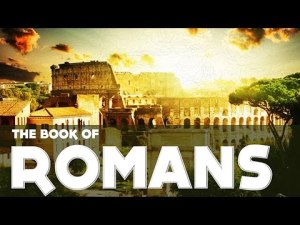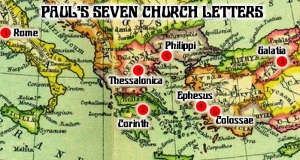
I have written before the “penal” part of the PSA (penal substitutionary atonement) model. In summary, I believe the “penal” part to be a misnomer. Its forensic focus merely obfuscates the ontological realities of the world that needs a lot of TLC from the one universal body of believers. The only sensible thing that can be expressed in a penal language is that sins bear their own penalty. One special case that I should mention is theocratic Israel under Mosaic law. Since those guys were quite obtuse in getting the message from God, God have them a legal system which was meant to model some aspects of sin and sins’ consequences through their judicial system. But the express purpose of that legal system was meant to draw Israel’s attention to the reality of the world’s brokenness, as opposed to being the truth it and of itself. That’s why “the law came through Moses, but grace and *truth* came through Jesus Christ.”
The “substitutionary” part of PSA is also quite misleading. If the atonement is purely judicial, and Jesus was merely punished by God in our stead, that raises as many issues as it purports to solve. It’s a double travesty of justice to punish the innocent and let the guilty go free. Instead, the Gospel teaches something which may sound similar to substitution on the surface, but it’s very different in a number of significant ways. I am talking about vital identification.
In a nutshell, Jesus bore the sin, the sickness, the entropy, decay, and the death of the world in his own body on the cross. Remember – Jesus was the Logos of God, and by him everything was created and in him everything moved and had its being. So, he didn’t just bear those things for humanity alone – he did it for the whole world. After the crucifixion, he went to the grave (which was to be our post-Adamic destiny as well). Afterwards, he rose from the dead with none of those things (sin, sickness, death, etc) being part of him any longer. In doing so, Jesus disposed of sin, sickness, entropy, decay, and death. When that happened – legally minded Jews “deemed him stricken and afflicted by God” punitively, but that was an error of perception. Jesus wasn’t stricken by God. He was betrayed by religious Jews and stricken by the occupying Romans. And he submitted to that treatment in order that “by his wounds we [may be] healed”, as humanity.
Read the rest of this entry »
 I once thought that in order to experience the living Spirit of God, it’s a good idea to lay aside secondhand preconceived ideas about him. I no longer think that it’s just a good idea. I am now convinced that it’s a requirement. It simply won’t work the other way.
I once thought that in order to experience the living Spirit of God, it’s a good idea to lay aside secondhand preconceived ideas about him. I no longer think that it’s just a good idea. I am now convinced that it’s a requirement. It simply won’t work the other way.

 One of the foundational maxims of Judeo-Christian worldview is that “you shall have no other gods before me”. Anything or anyone which you consider as the source of your livelihood, economic and financial security, safety, security, etc. in a way which overshadows your faith in God and his ability to supply, support, and protect you is considered to be an idol. That’s a classic definition of idolatry. Your idols could be persons, organizational or national entities, or things like finances, possessions, firearms, etc.
One of the foundational maxims of Judeo-Christian worldview is that “you shall have no other gods before me”. Anything or anyone which you consider as the source of your livelihood, economic and financial security, safety, security, etc. in a way which overshadows your faith in God and his ability to supply, support, and protect you is considered to be an idol. That’s a classic definition of idolatry. Your idols could be persons, organizational or national entities, or things like finances, possessions, firearms, etc. Montesquieu was a man who rewrote political philosophy of his day. His ideas form a foundation of our democratic republic here in the U.S., and form a backbone of the U.S. Constitution.
Montesquieu was a man who rewrote political philosophy of his day. His ideas form a foundation of our democratic republic here in the U.S., and form a backbone of the U.S. Constitution.  The beginning chapters of the book of Revelation contain 7 letters to the 7 churches. The churches are represented by seven golden lampstands. More specifically, the letters are addressed to the “7 stars”, representing the “7 angels of the churches”. What do all those expressions mean?
The beginning chapters of the book of Revelation contain 7 letters to the 7 churches. The churches are represented by seven golden lampstands. More specifically, the letters are addressed to the “7 stars”, representing the “7 angels of the churches”. What do all those expressions mean? When you undergo deep inner transformation, you begin to awake to the reality of the Good News of Jesus Christ. You begin to sense and see unconditional love of the Father toward humankind, and you begin to flow in his divine power to bring about genuine transformative changes in people, places, and situations. You begin to feel like you’ve finally found the pearl of great price, and you can’t wait to share your findings with those around you.
When you undergo deep inner transformation, you begin to awake to the reality of the Good News of Jesus Christ. You begin to sense and see unconditional love of the Father toward humankind, and you begin to flow in his divine power to bring about genuine transformative changes in people, places, and situations. You begin to feel like you’ve finally found the pearl of great price, and you can’t wait to share your findings with those around you.
Recent Comments